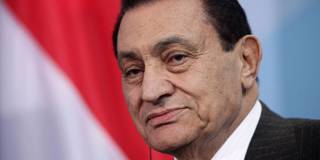The Two Faces of Pharaoh
Hosni Mubarak was an autocratic ruler, under whom radical opposition – especially Islamic – was not tolerated. But his repressive rule was a modest affair compared to that of other Arab leaders, and his maintenance of the peace treaty with Israel delivered real benefits to ordinary Egyptians.

JERUSALEM – The Roman historian Sallust remarked that the way states are established determines how they are ruled. This dictum can be applied to individual rulers as well. Moreover, in many cases, the way a ruler’s power ends determines how his rule will be remembered.